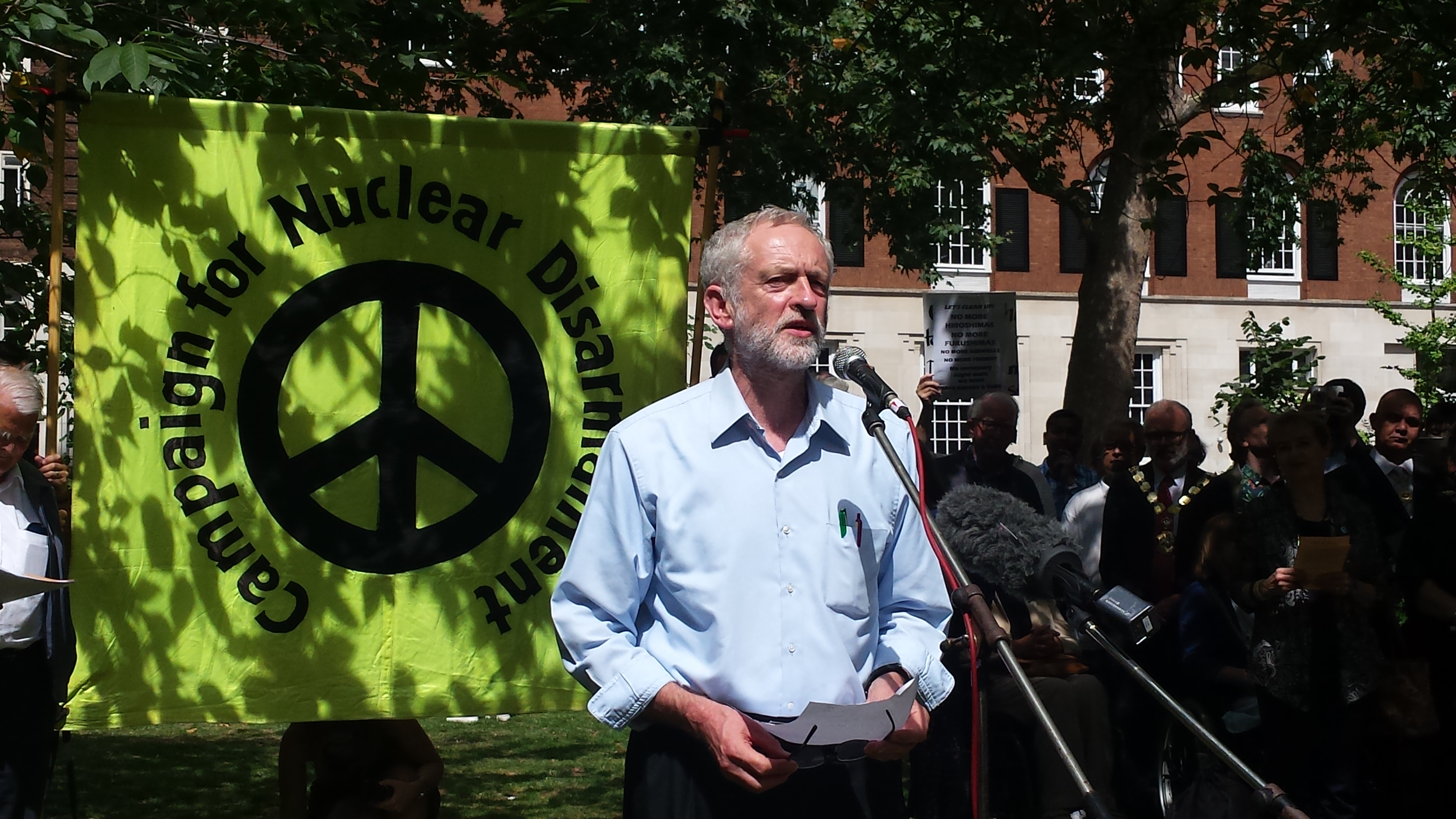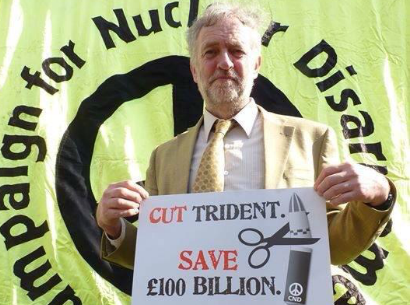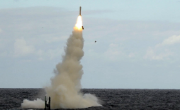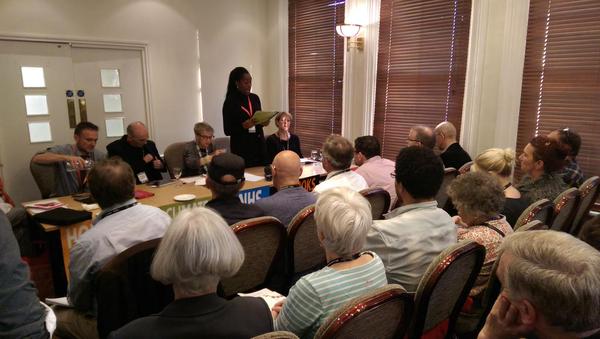- Assemble outside Parliament this evening, 6pm, Monday 27 June – details here
- Sign the Momentum petition in support of Corbyn
- Sign the 38 Degrees petition in solidarity with Corbyn
Labour’s Defence Policy review continues
Thanks to everyone who responded to Shadow Defence Secretary Emily Thornberry’s invitation to participate in Labour’s Defence Policy Review. Her report will be presented to the International Policy Commission which reports to the National Policy Review. The NPF will meet on 2nd July, after which it will prepare a report for Labour Party conference in September.
Labour’s review of defence policy is not over. It has now entered another stage, and the next deadline is Wednesday 8 June. Please participate, by responding to the International Policy Commission’s consultation. We explain how to do so below. You don’t have to be a member – anyone can express their views.
CONTACT THE IPC via the yourbritain website at http://www.yourbritain.org.uk/agenda-2020/commissions/international or search on ‘IPC consultation’. The page which comes up invites you to share your views, and allows you to download the consultation document, Britain’s defence and security priorities. Anyone can read anything on the site.
TELL THE IPC YOUR VIEWS Anyone can participate, Labour Party member or not. You can put forward your own views by making a submission. You can also read, comment and vote on the views of others.
To do so, you must first log in. If you’re a member of the Labour Party and registered for Membersnet, just click log in in the top right corner and give your Membersnet username and password. (Depending on the browser you use, you may need to log in after each comment or vote you make.)
If you’re not a Labour Party member, or not registered for Membersnet, you will have register by clicking register. You’ll then be asked to give your name, postcode, and email address, and to choose a username and password. The information you give is not shared with others.
You can now express your views by clicking make a submission. You?ll be asked to give a title and a summary of not more than 600 words. You can also choose whether to give your full name or a shortened version – eg Josephine Smith or Jo S. You can attach a longer document if you wish, putting your views at length -?but if so, it helps to make a summary as not everyone browsing the site will take the time to download and read the long version.
What you say will be posted for others to see, and to comment and vote on. You can also respond to other people?s comments on your submission. Here’s an example taken from the website:
Renewal of Trident does not increase our security
Posted on 19-05-16 by Annie Tunnicliffe
Number of votes: 1 | Number of comments: 2
Top threats to our national security are Terrorism, cyberwarfare, global epidemics, natural disasters, instability in Middle East and chemical/biological WMDs. Trident has no relevance to any of these. Also advances in cyber technology underwater mean that by the time Trident is renewed, tracking the “secret” submarines will be on stream??
Comment posted on 21-05-16 by Simeon Elliott
Thank you for your submission Annie. I agree with all the points that you have made, and like George I shall be supporting your views in the International Policy Commission. Sim Elliott, an NPF representative (South East CLPs) on the International Policy Commission.
COMMENT & VOTE ON OTHER SUBMISSIONS
Commenting and voting on the submissions of others is important. The number of comments and votes will be recorded and may be taken as evidence of support for a point of view.
That helps tell the Labour Party know how much opposition there is to Trident replacement. We encourage you to visit the yourbritain website from time to time, to look at and respond to other submissions.
Thanks for your patience in reading through this, and please share it with others. Together we’ll let the Labour Party know that the majority wants to Stop Trident!
Labour’s Defence Policy Review – ACT NOW
The Labour Party is reviewing its defence policy, including Trident. Everyone is eligible to participate in this review by making their views known to Labour’s Shadow Defence Secretary Emily Thornberry, before the 30th April deadline.
Individuals and organisations can participate. You don’t have to be a Labour Party member or affiliate to do so. Submissions opposing Trident replacement can help influence the eventual outcome of Labour’s deliberations, and I urge you to consider making your views, and those of organisations you belong to, known. The advice below will, I hope, help you to do so.
WHO CAN PARTICIPATE?
Any individual or organisation, whether or not they’re a Labour Party member or affiliate. Shadow Secretary of State for Defence, Emily Thornberry, the author of the policy review document says: ‘We want to seek the widest possible range of views, spanning academia, the defence industry, NGOs, parliamentarians, the public and, of course, members of the armed forces themselves.’
IS THERE A PARTICULAR FORMAT?
You can express your opinion in whatever way you find easiest. The Defence Policy Review document (attached) sets out Ms Thornberry’s terms of reference expressed as a series of questions which you might consider addressing.
The one about Trident is: ‘Will renewal of Britain?s nuclear capability aid us in protecting Britain?s security and pursuing the values that guide our foreign and defence policy?’
Ms Thornberry begins by explaining that the nature of the threats facing Britain has changed in the past 50 years, and outlining the overall context of Labour’s review with questions such as: ‘What role should Britain play in building a world that is more peaceful, more just and safer?’ and ‘What should be the values and principles that drive Britain’s strategic defence policy?’
HOW MUCH SHOULD I WRITE?
You don’t have to produce a magnum opus or a details scientific tract -?a paragraph or two will do. Say what you think of Trident and give a couple of reasons why. There’s an example below, use it as encouragement. But please don’t copy it -?large numbers of identical submissions won’t be effective.
I oppose the replacement of Trident because nuclear weapons cause indiscriminate harm to the planet and its people. Their possession by countries such as Britain encourages proliferation by others who don?t have nuclear weapons. Replacing Trident doesn?t protect us from the main risks facing this country such as terrorism, cyber-attack, or the effects of climate change like floods and storms. Trident is extremely expensive, costing an estimated ?100 billion over its lifetime. The money could be better used for socially productive and wealth-generating projects, which would help create more money for the government to spend on health, education and social services.
ENCOURAGE OTHERS TO PARTICIPATE
If you’re a member of a CND group, trade union branch or local Trades Council, or community campaign, please encourage them to take a view on Trident and send it to Labour’s Defence Review with a brief explanation of what the organisation is and how Trident replacement affects its members. For example: My housing association is opposed to Trident replacement because… and would prefer the money to be spent on improving existing social housing and on providing more affordable new homes.
SUBMISSIONS FROM BRANCH AND CONSTITUENCY LABOUR PARTIES
It?s important that as many individual party members as possible send their views to Ms Thornberry. This helps to give a true reflection of party opinion. If your Labour Party branch and/or constituency has adopted a policy against Trident replacement, send a copy of the resolution to the Defence Review, with a few comments about the views members expressed.
Many branch and constituency parties aren?t meeting in April because of elections. If your party has adopted a policy against Trident replacement in the past few years, send that to the Defence Policy Review with an explanation that the elections have prevented a contemporary discussion in time for the Defence Review deadline.
WHERE TO SEND YOUR VIEWS
Your submission should be emailed to defencereview@labour.org.uk If you don’t have email access, mail it to The Labour Party, Southside, 105 Victoria Street, London SW1E 6QT
RESOURCES
– A copy of Labour?s Defence Policy Review can be downloaded through the through the Labour CND website
– Labour CND has produced a Trident Fact File which can provide some information you need to draft a submission.
–CND UK website has a number of briefings you can use to dig out pertinent information.
Good luck, and thank you for your efforts,
Carol Turner
Vice Chair, Labour CND
Labour’s defence review
Dear Labour Party Member,
HELP GET A LABOUR PARTY COMMITMENT NOT TO REPLACE TRIDENT
Emily Thornberry, Shadow Defence Secretary has published her terms of reference for Labour?s defence policy review (attached), asking individual members and local parties to send submissions before 30 April 2016. Labour CND urges you to make your opposition to Trident known, and to encourage your branch and constituency to do? likewise.
Emily points to the changed nature of security threats facing Britain today, and asks ?what role should Britain play in building a world that is more peaceful, more just and safer?.
Her key question on Trident is: Will renewal of Britain?s nuclear capability aid us in protecting Britain?s security and pursuing the values that guide our foreign and defence policy?
Branch and Constituency Submissions
Please ensure that your CLP passes a resolution demanding that the Trident missile system should not be replaced, and sends it to the Defence Policy Review. You are the best judge of how to maximise support for such a resolution. But consider keeping it as short as possible, and if you need suggestions, please get in touch with Labour CND.
If your CLP has already made decisions on defence and security policy, ask that these are communicated to the Review. This should be done even if previous submissions have been made to the National Policy Forum.
Individual Submissions
You should make an individual submission too, and encourage others to do so. Your submission can go into as much or as little detail as you like. We attach our Trident Fact File which may be of help. All submissions must be sent to defencereview@labour.org.uk to arrive before 30 April 2016.
Labour must take the lead in getting rid of Trident. We depend on you.
Yours in peace and socialism,
Walter Wolfgang
Chair Labour CND
Labour CND Trident Fact File
After a very successful conference at the end of January, Labour CND is pleased to publish a Trident Fact File, which you will find useful when preparing to discuss Trident at local party meetings.
Alternatively if you would like a Labour CND speaker to come to your meeting please do get in touch with us.
Labour CND Conference 2016
Labour CND is pleased to announced our 2016 conference will take in London in January. Full details can be found below:
Labour, Trident and Foreign Policy
Saturday 30th January 2016 – Registration opens 10:00
Conway Hall, Red Lion Square, London
Sessions on the day include:
Trade Unions and Trident (Chaired by Maya Goodfellow)
Mark Serwotka – General Secretary PCS
Roger McKenzie – Assistant General Secretary Unison
Philipa Harvey – President NUT
Campaigning on Trident (Chaired by Maya Goodfellow)
Ruth Cadbury MP
Nick Brown MP
Trident and the Labour Party
Clive Lewis MP
Kate Osamor MP
Kate Hudson – CND General Secretary
Foreign Policy
Diane Abbott – Shadow Secretary of State for International Development
Catherine West – Shadow Foreign Office Minister
MORE SPEAKERS TO BE CONFIRMED
Due to the costs associated with the conference it is strictly ticket only. Tickets can be purchased through Eventbrite for £3 plus fees or on the door for £5.
The conference will conclude at 17:00 and will be followed by a short Labour CND AGM.
CLPs say no to Trident
In recent months a number of CLPs have held discussions on Trident ahead of the policy review which will be undertaken by the Labour Party this year. You can see a selection of the motions which have been passed.
If your CLP would like a Labour CND speaker for a meeting on Trident, or if a motion is passed, please let us know by emailing info@labourcnd.org
East Devon CLP
East Devon Constituency Labour Party is opposed to the renewal of Trident
Richmond Park CLP
This CLP is in favour of scrapping the Trident Missile System and not replacing it
Tamworth CLP
This CLP believes that the Labour Party should oppose the replacement of the Trident nuclear missile system
Brent Central CLP
This meeting agrees that Trident should not be renewed
Birkenhead CLP
We call upon the next Labour government to scrap Trident due to the high cost, and the danger of maintaining it.
Littleborough & Lakeside Branch (part of Rochdale CLP)
This meeting notes that the projected replacement of the Trident Nuclear Missile system:
- Is set to cost ?167, 000, 000,000 at a time when Conservative austerity measures are depriving our local authority of the resources to pay for much needed and valued services,
- Will not address the real security challenges to this country such as climate change, terrorism or cyber attacks,
- Is a first strike, not defensive, weapon of mass destruction, incapable of distinguishing between civilian and military targets and whose effects will devastate this country as well as any enemy against which it is used,
- Is neither independent from the US nor a deterrent to warfare and serves only to maintain the illusion of power,
- Is illegal in that its effects are genocidal and therefore it contravenes the Geneva Convention. Renewing it would breach our commitment to the Non-Proliferation Treaty which the UK has signed and ratified.
This meeting resolves therefore to declare its opposition to the renewal of the Trident system and calls on the government to dedicate some of the resources saved by cancelling its renewal to be used to stimulate employment opportunities for those who would lose their jobs.
The meeting also calls on the Rochdale Constituency Labour Party to endorse this resolution and to recommend that it is adopted by the Party as part of its review of the national defence policy.
Hackney North and Stoke Newington CLP
This General Meeting notes:
- The current Government’s commitment to replace the existing Trident nuclear weapons system at a cost conservatively estimated at ?100 billion over a period of more than four decades. Indeed, the Tory chair of the Foreign Affairs Select Committee, Crispin Blunt MP, has suggested a figure exceeding ?165 billion.
- The likelihood of a parliamentary vote in 2016 on authorisation of a Trident replacement.
- The demonstration called by Campaign for Nuclear Disarmament (CND) and numerous civil society organisations for Saturday 27 February 2016 in opposition to Trident renewal.
This General Meeting believes:
- Trident and similar ‘weapons of mass destruction’ do nothing to enhance the security of the population resident in Britain, especially in a post-Cold War world.
- The expenditure of billions of pounds on a new, extraordinarily expensive weapons system is especially objectionable against a background of remorseless cuts in social welfare spending and most other areas of public expenditure.
- The campaign pledge from Labour Party leader Jeremy Corbyn to develop a Defence Diversification Agency policy to ensure socially useful, skilled employment for those workers in industries currently tied into the production of nuclear weapons and delivery system.
This General Meeting therefore resolves to publicise the 27 February demonstration to members and make sure the Hackney North CLP banner is present on the march; and copy this motion to our MP and the National Executive Committee.
Hackney North and Stoke Newington CLP
The General Meeting is against the renewal of the Trident system as it is not a deterrent; and because it makes no moral, practical or economic sense.
Scottish Labour – delegate view
Stephen Low, Glasgow Southside CLP, who moved the anti-Trident motion at Scottish Labour Party conference writes:
The debate on Trident renewal at Scottish Conference was passionate and delivered an unequivocal verdict. With a near identical 70% vote from both CLPs and Trade Unions the UK’s possession of nuclear weapons was condemned and the concept of defence diversification was promoted. Hav ing been passed by more than a 2/3 majority it is now part of the Scottish Labour’s programme and will form the submission of the Scottish Labour Party to the Britain in the World Policy forum.
The debate stemmed from the results of a priorities ballot where Trident renewal was by some measure the most popular topic. Although this decision by CLP delegates was itself described in the session as “”a nonsense and utter indulgence”” by Gary Smith, Secretary of GMB Scotland.
The first indication that the vote might well go against Trident renewal was when a reference to Jeremy Corbyn’s statement that he would never launch a nuclear strike received loud applause from the hall.
Those arguing for the motion cited a large number of factors; the morality of weapons which would kill so indiscriminately, the lack of utility in Trident a new Trident system in tackling the requirements under the Non Proliferation Treaty, the staggering cost and the loss of potential to diversify our industrial base if we are keeping so much of our industrial workforce locked into what is in many respects an economic dead end.
What was noticeable in the arguments of those who were advocating building what is one of the most destructive weapons system s in human history was how little they talked about the defence of the realm. Even the few, like ex MP Thomas Docherty and MSP Jackie Baillie who gave more thn passing reference to the role a new trident system would supposedly play in securing the UK concentrated in what they claimed would be the impact on jobs.
Without Trident renewal it seems that British manufacturing will just collapse. This argument was pursued to such an extent that in my right of reply. I felt obliged to apologise to conference for failing to notice the change in construction techniques which mean that the only possible use for British steel is in the construction of nuclear weapons.
The “Gie’s mair bombs – cos bombs means jobs” approach – and this is a paraphrase, not a cariacature – of the argument laid out, is both curious and dispiriting. The purpose of a defence policy is in fact defence, not job creation. Incidentally Trident renewal scores very poorly in terms of job creation. The likelihood is that it will force cutbacks in other defence spending). Moreover it represents an appalling failure of social and economic ambition. It’s implication is that the only employment that can be envisaged for our most skilled craftspeople, our most highly trained technicians, is in making nuclear weapons. That defence diversification is something that only other countries can make work.
By a thumping majority, Scottish Labour decided otherwise.
Report on fringe meeting at Scottish Labour conference

Labour CND held a successful fringe meeting at the Scottish Labour Party conference in Perth. The meeting took place in the Perth Art Gallery just hours after delegates from both Trade Unions and CLPs voted to put Trident on the conference agenda. Arthur West, Chair of Scottish CND, chaired the meeting.
The first speaker was Neil Findlay MSP, who was involved in the leadership election for Scottish Labour last year. Neil used his contribution to call for the widest possible coalition against Trident to be built. He noted that while the movement within the party appeared to be away from Trident, it is vital that concerns around jobs are addressed.
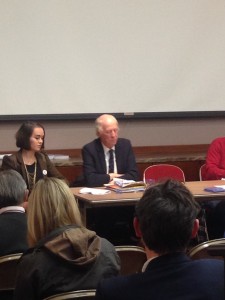
The next speaker was Malcolm Chisholm MSP, who has been a long-standing opponent of Trident. Malcolm said that it is his firm view that there has never been a better chance to build a wide-ranging coalition against Trident. He said that it isn’t a left-wing issue, citing former Conservative Defence Secretary Michael Portillo and Chair of the Foreign Affairs Select Committee Crispin Blunt. Malcolm finished by echoing Neil Findlay’s call for jobs issue to be addressed, but stated clearly “Trident is not a good job creation plan”.

Elaine Smith MSP started her remarks by paying tribute to the late Alan MacKinnon, who put so much work into Jeremy Corbyn’s plan for defence diversification. Elaine said that it’s her view that many people in the Labour Party are opposed to nuclear weapons but differ on the way we reach the goal. It is the duty of those who believe in a nuclear weapon free UK to make that case within the party, she said. Elaine ended her contribution by calling for those who support nuclear weapons to say who it is deterring, where they should be aimed and under what circumstances they should be fired. Not passing the motion before conference would send Scottish Labour candidates “naked into the 2016 election”, she said.

Cara Hilton MSP recalled her first speech at Scottish Labour conference, which was also against Trident. She said that Scottish Labour is now attracting people who haven’t been involved in politics for many years. She said that while millions of people are relying on foodbanks it would be unthinkable that we are writing a blank cheque for nuclear weapons which we could never use, citing new estimates that Trident replacement might actually cost as much as £167 billion. Cara ended her contribution by calling on Britain to set an example in the world by rejecting immoral nuclear weapons.
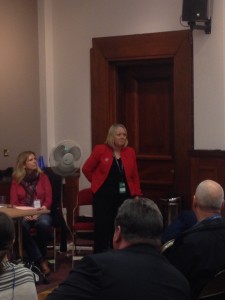
Cathy Jamieson, MP for Kilmarnock and Loudoun from 2010-2015 started her remarks by saying that it wasn’t always easy to be a member of CND and on the Labour front bench. Cathy served in many front bench positions, including in the shadow Treasury team. She said that she is as committed to non-replacement of Trident as ever. Cathy called for a reinvigorated and re-energised Scottish Labour CND to emerge from the weekend. This suggestion gained a large amount of support from the audience.
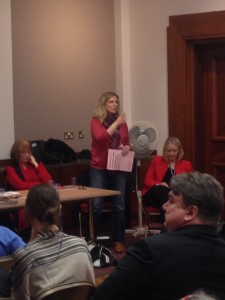
The next speaker was Lesley Brennan, who stood in the 2015 General Election in Dundee East. Lesley started by saying how satisfying it was that Scottish Labour would debate Trident, as she previously spoke at the CND fringe meeting at the 2014 Labour conference in Manchester. She said that she was looking forward to Scottish Labour taking the lead in voting to move towards a future without nuclear weapons. Lesley finished by saying that, while we have to acknowledge the fact that Trident does employ people with high skills and genuine concerns about the future, for the money being spent we should be creating many more jobs.
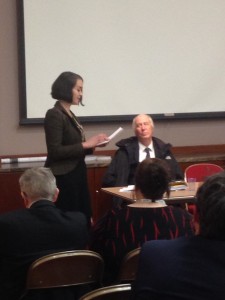
The final speaker of the evening was April Cumming, a Labour Party researcher and activist who recently addressed one of Jeremy Corbyn’s leadership rallies in Scotland. April started her comments by paying tribute to Malcolm Chisholm, who she decsribed as a “politician of highest principle”. April called on the entire Labour movement to unite to “raise our voices to protect the high-skilled jobs involved in Trident and lead the transition to the hi-tech jobs of the future. In decribing nuclear weapons as ‘window dressing’ April said that Labour must “share the desire to stand as a moral compass with leaders of the past including Keir Hardie”.
Report on CND meeting at Labour conference

The CND, Labour CND and Labour Action for Peace fringe meeting is a firm fixture at the Labour Party Conference. This year, following delegates deciding not to put Trident on the conference agenda, the meeting was given an extra sense of urgency.
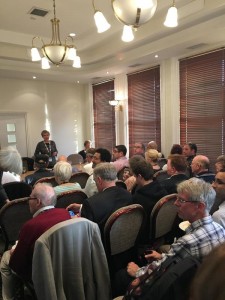
The meeting, which took place at the Mercure Hotel in Brighton was full long before the first speaker addressed the crowd. Delegates and party members were joined by members of the press to hear Kate Osamor MP, Julie Ward MEP, Chris Williamson (MP for Derby North 2010-2015) and Jo Rust and Simeon Elliott (both National Policy Forum). The meeting was Chaired by Kate Hudson, General Secretary of CND. There were also a host of jounralists in attendance, including several political editors and film crews from the UK and Germany. Kate Hudson started the meeting by reading out a statement from Jeremy Corbyn, who was due to speak at the meeting but was unable to attend due to his commitments as leader. The statement reaffirmed Jeremy’s position on Trident and he pledged to do his “persuasive best” to change Labour policy, for which he has a massive mandate.
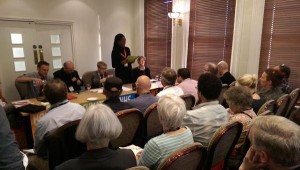
Kate Osamor, recently elected in Edmonton, told the meeting that opposition to Trident had been a key part of Jeremy Corbyn’s platform in the Labour leadership election, and she was commited to doing everything she could to oppose spending £100 billion on a new generation of nuclear weapons.
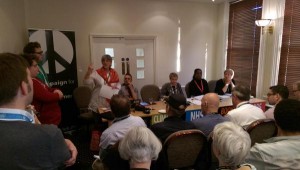
Julie Ward MEP, representing the North West of England, spoke about the work she is involved in at the European level, but also locally. Her constituency includes both Barrow, where work on the replacement submarines will take place, and Manchester, one of the UKs many nuclear-free local authorities.
Chris Williamson spoke about the need for Labour to have a coherent, consistent policy on Trident, and his conviction that changing position would be electorally beneficial. Chris also spoke about the need for defence diversification, as set out by Jeremy Corbyn in his election campaign.
Jo Rust and Simeon Elliott, both recently elected to the National Policy Forum, both spoke about the need to engage members in the policy making.
After the opening remarks from the panel there were a range of questions from the floor including on the morality of nuclear weapons, the so-called deterrent effect and ideas for what else the money would be better spent on.

